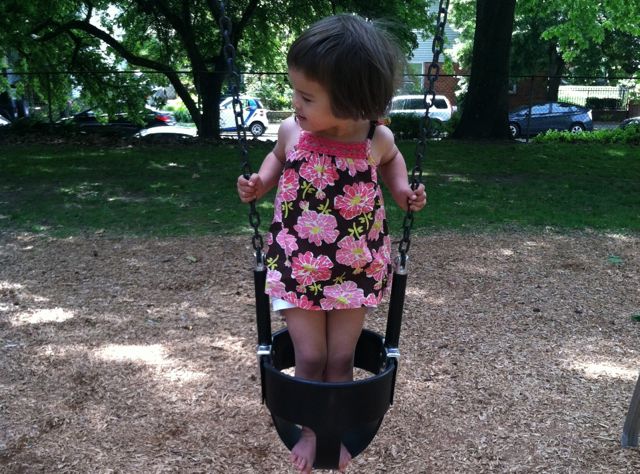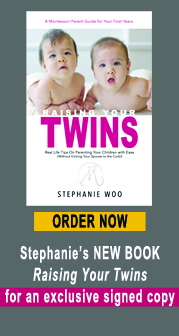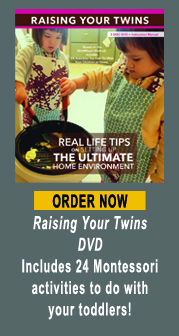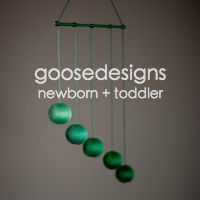The Pink Tower of Language
It’s been a month since you last heard from me. The main reason is because Mark and I decided to try life without a nanny. We lasted exactly 29 days.
Now that we have a nanny again, I’m over-the-moon excited (and have extra appreciation for all nannies out there) because I feel like I can finally get back to the projects I’m passionate about and have a little more me-time. Granted Mark has been a god-send this past month, cooking, cleaning and taking care of the children, while I finished all the final details of my book and DVD. If you want to know more about my ‘second set of twins’ – which took much longer to birth than B and M! – visit www.RaisingYourTwins.com.
As some of you know, we’ve always hired Mandarin-speaking nannies because I want another person to speak Mandarin to B and M. However, our new nanny only speaks English, so I called my mom to ask her for some advice on how to keep up the Mandarin at home.
Mom tells me a story about Renee, my 3-year old niece, who wanted a popsicle. Grandpa thought a whole popsicle was too much for her, so he said he needed to take a few bites before he could give it to her. He takes a big bite. “That’s too much!” she said nervously. He takes another bite. “Okay! That’s enough!” she says. As he took yet another bite, she exclaims, “No more! No more!”
In her moment of panic, she said the same thing in three different ways. The first way didn’t work, so she had another way of expressing herself to Grandpa, and when that failed, she came up with yet another. When a 3-year-old can say the same thing in so many different ways and all in the right context, it’s a good sign she lives in a rich language environment.
B and M (now 2 years and 7 months) were on the swings a couple days later. As we were swinging, I started commenting on what was happening, “You’re going so high!” “Now, you’re not going as high anymore. You’re starting to slow down.” “Look, the swing stopped completely!”
When they said, “Higher!” I’d say, “Is this high enough? Do you want to go even higher than this? Or is this too high?”
Whether something is ‘high enough,’ ‘too high’ or needs to be ‘higher’ are all subtleties in our language that young children can absorb. It’s a little like the ‘Pink Tower of Language.’ You have high on one end, low on the other end, and everything else in between.
This point is especially important for children of bilingual parents. Children will likely pick up these subtleties in normal everyday interactions at some point, but when there is only one person speaking that language to the child, then they need to absorb all those subtleties from one person. If you are that person for your child, you need to vary your speech enough so that they have the chance to hear all those differences.
I dropped the children off at camp this morning. As we are getting closer to school, B comments, “We’re not far now!” 10 seconds later, she adds, “We’re almost there!” As we pull up in front of her building, she says, “Now the school is right in front of us!” I love living with the magic of the Absorbent Mind. You give the child language, before you know it, they’ve absorbed it and it’s all coming out.










